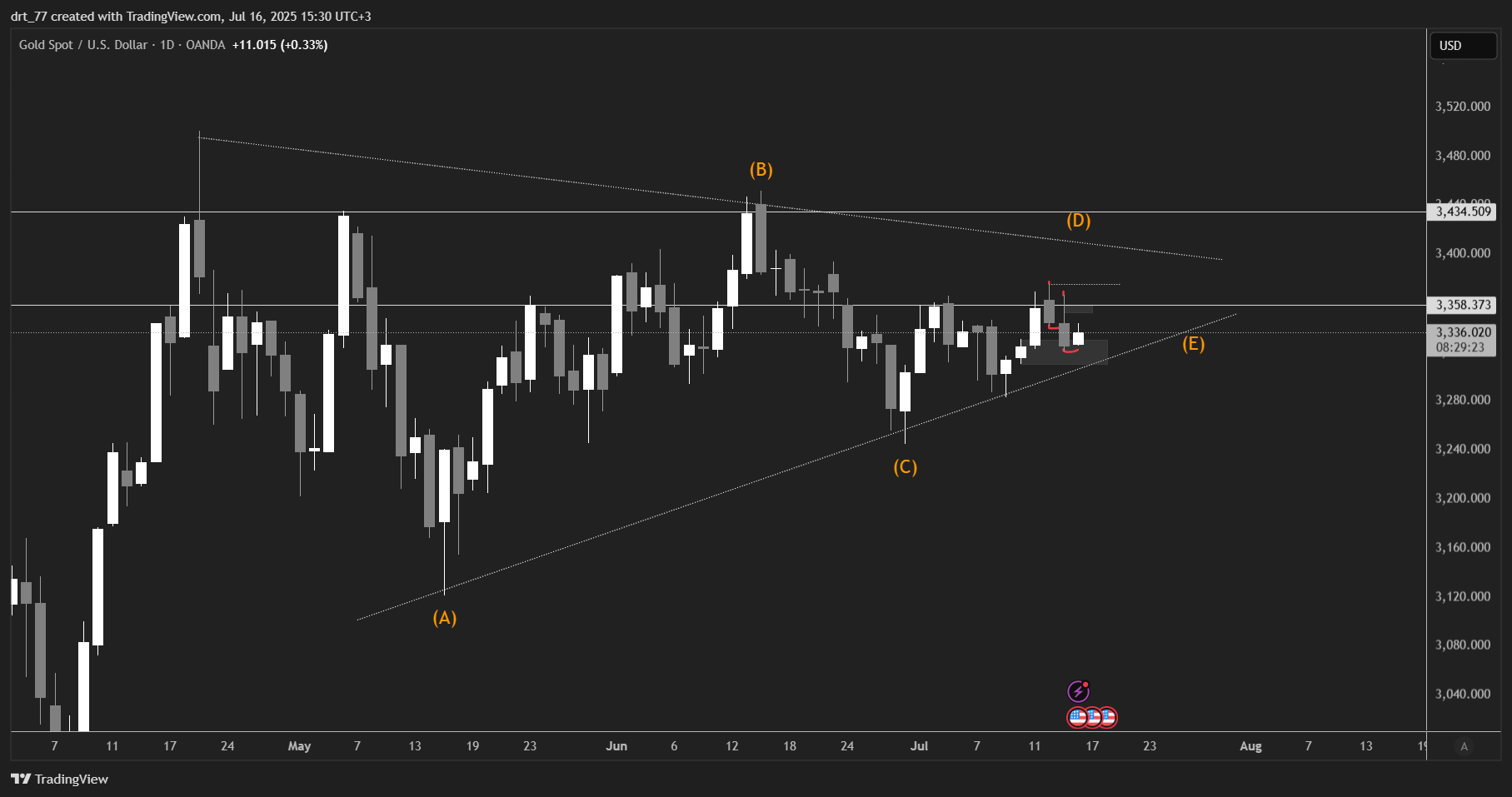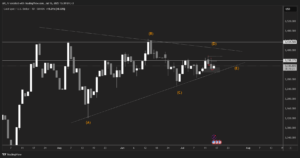Bank of America: Be Prepared for a US Debt Default.
Brian Moynihan, CEO of Bank of America, said it was necessary to prepare for the case of a US debt default and a recession that would lower corporate profits.
Brian Moynihan, the CEO of Bank of America, said in an interview with CNN on Monday that he hoped the government would not slip into default. He however warned that this was a potential event that could upset the markets and the economy. Moynihan said that everyone must be ready for a possible default in this country and other countries worldwide. He then added that he hopes this does not occur. However, hope is not a proper strategy; hence, we must be prepared for a debt default.
Moynihan said the United States needed to borrow more in the few previous years due to exceptional circumstances, including the COVID-19 crisis. Nevertheless, the discussion has to take place about ensuring we live within our means as a country. The United States of America reached its maximum borrowing limit of $31.4 trillion in January, prompting the US Treasury Department to implement extraordinary measures to prevent the country from defaulting on its debt.
The Dollar’s Rally Eases and AUD/USD Rises.
After its rally yesterday, the US dollar eased on Tuesday but is still hovering near a one-month high as traders increase their expectations of more monetary tightening by the US Federal Reserve. Meanwhile, the Australian dollar rose in the wake of the Reserve Bank of Australia’s interest rate hike, as the currency climbed 1%, hitting an intraday high of $0.6952, and was last trading at $0.6932.
The Reserve Bank of Australia raised interest rates by 25 basis points as expected on Tuesday. The bank assured that more increases would be needed. The RBA signaled a more hawkish policy stance than many expected. Rob Carnell, head of research at ING Group Asia Pacific, said: “By suggesting that inflation will remain elevated for a prolonged period, the RBA is undercutting any ideas of easing later in the year or early next year. This will raise long-term bond yields and short-term interest rate expectations. It will also give the Australian dollar a boost,” he added.
Meanwhile, the markets were recovering from the shock of the US jobs report released on Friday. The report which showed that non-farm payrolls increased by 517K jobs in January, indicating the labor market’s resilience. The report confused traders expecting an imminent halt to the interest rate hike cycle.
Oil Continues to Rise Amid Supply Concerns.
Oil prices rose for the second day due to supply concerns after an earthquake shut down a major export terminal in Turkiye and a field in the North Sea closed unexpectedly. Moreover, the increasing expectations of a recovery in demand in China, the largest importer of crude in the world, also supported the prices. Brent crude futures rose to $81.39 a barrel, while US crude futures rose to $74.54 a barrel.
Operations at the Turkish oil terminal in Ceyhan were halted after a strong earthquake struck the region. It is known that this port can export up to one million barrels of crude per day. A Turkish shipping agent said the terminal, which exports Azerbaijani crude oil to international markets, will be closed until February 8 while operators assess damage from the earthquake.
Also, optimism about the recovery of Chinese demand for fuel is an impetus for prices. The head of the International Energy Agency said on Sunday that the agency expects that half of the growth in global oil demand for this year will come from China. He added that the demand for jet fuel is rising. On the other hand, Goldman Sachs raised its forecast for China’s oil demand in the fourth quarter of this year to 16 million barrels per day, an increase of 400,000 from its previous estimates. An increase in total annual demand in 2023 by one million barrels per day.
Russian product price caps also came into effect on Sunday. The G7, the European Union, and Australia agreed to a $100-per-barrel cap for diesel and other products traded at a premium over crude oil and a $45-per-barrel cap for products sold at a discount such as fuel oil.
Bed Bath & Beyond Shares rise 92% Despite Bankruptcy Fears.
Bed Bath & Beyond stock rose more than 92% at Monday’s close. The US retail company had previously announced that it was at risk of defaulting on its debts, failing to meet the dates of financial obligations.
It is still being determined whether the retailer will succeed in avoiding filing for bankruptcy, restructuring its business with the sale of some assets, or completely liquidating the company and going out of business.
Bloomberg also reported that the former Bed Bath & Beyond employees had not received severance payments. Bed Bath & Beyond shares rose by 92.1% at $5.86 at the close of Monday’s session after trading was suspended on the stock due to sharp fluctuations that pushed it to record $7.03.
Disclaimer: This article is not investment advice or an investment recommendation and should not be considered as such. The information above is not an invitation to trade and it does not guarantee or predict future performance. The investor is solely responsible for the risk of their decisions. The analysis and commentary presented do not include any consideration of your personal investment objectives, financial circumstances, or needs.





